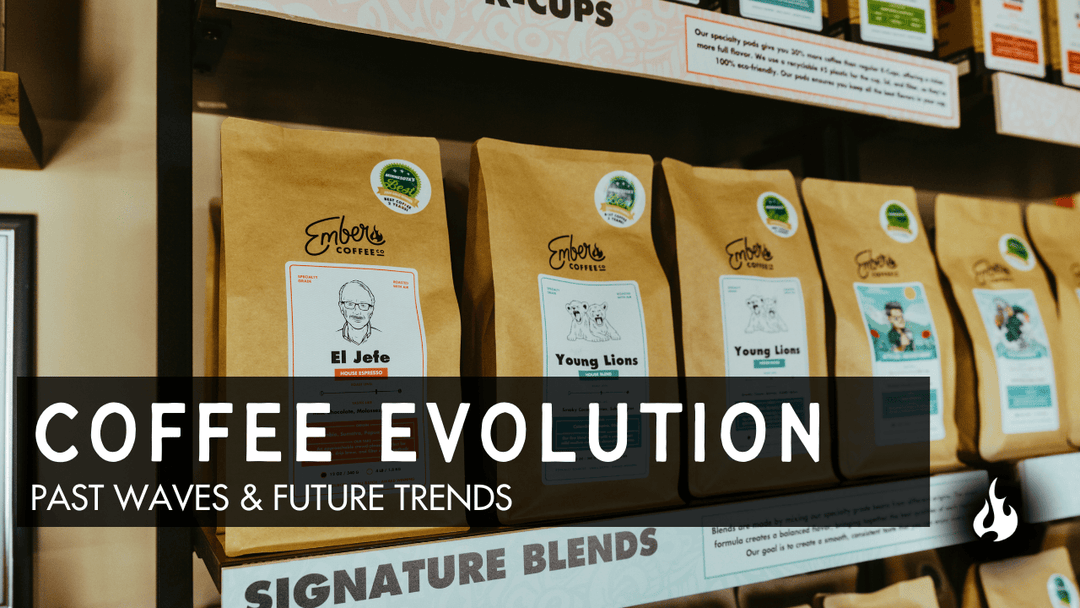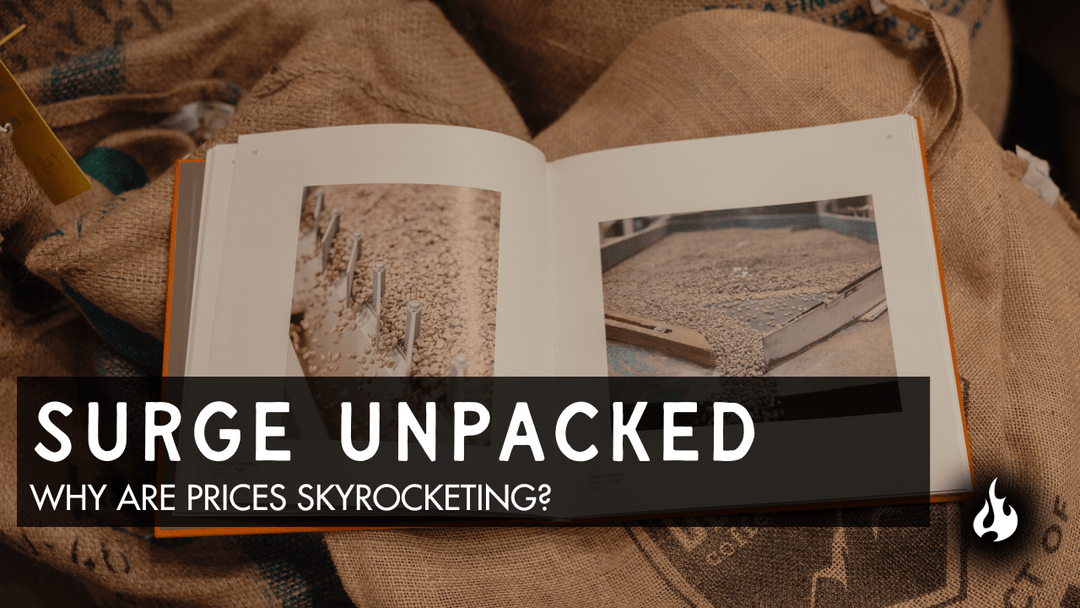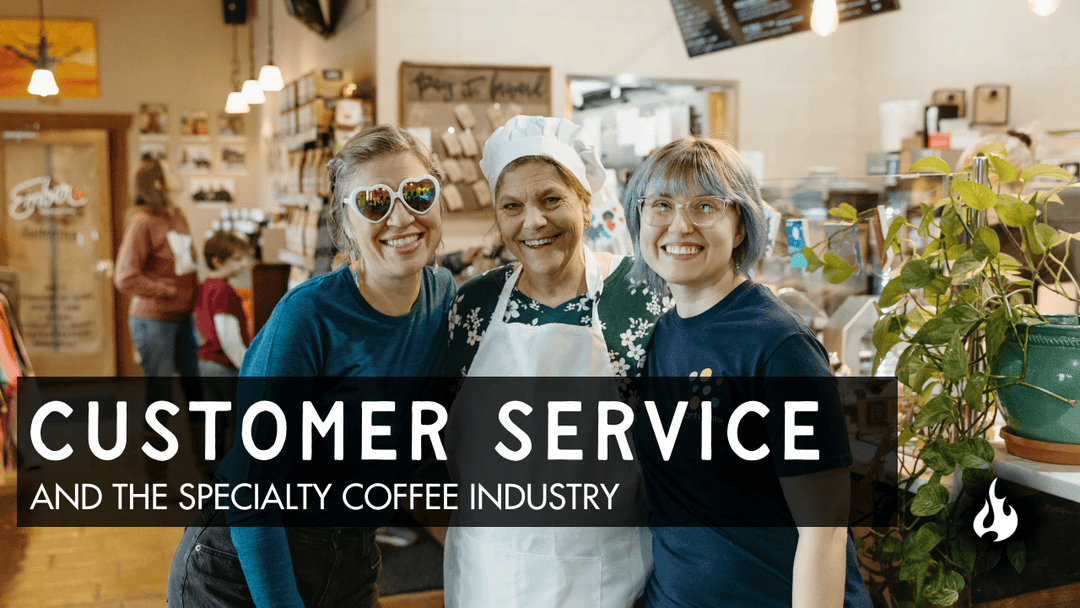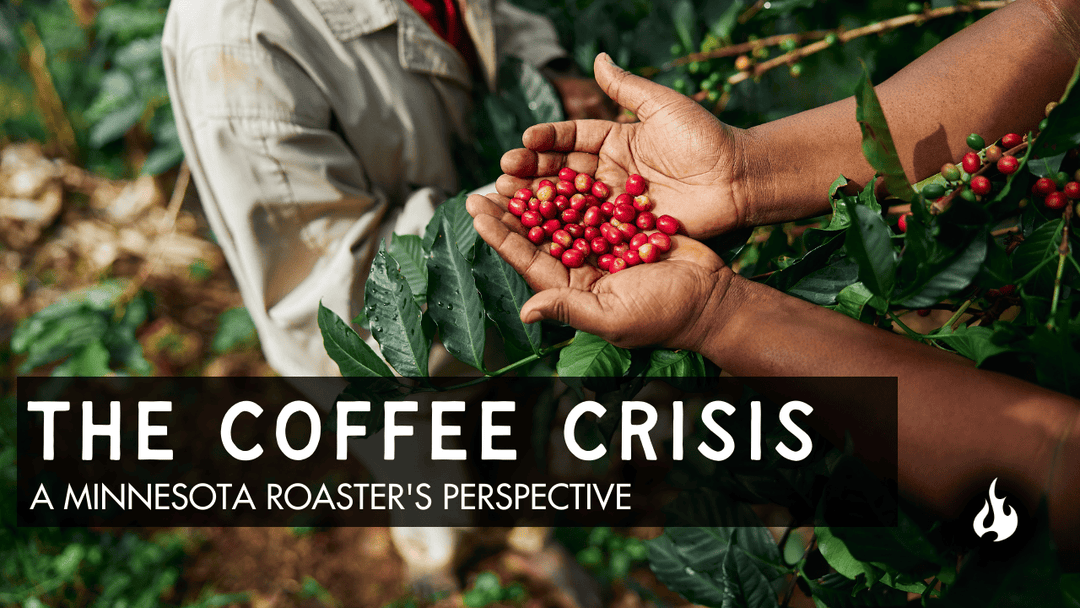How Sustainable Coffee Protects Nature
How Sustainable Coffee Protects Nature
Coffee isn’t just a morning pick-me-up; it’s a link to culture, community, and the planet. But have you ever wondered about the journey your cup of coffee takes before it reaches your table? Behind every sip lies a story of impact—on people, places, and the environment.

Coffee isn’t just a morning pick-me-up; it’s a link to culture, community, and the planet. But have you ever wondered about the journey your cup of coffee takes before it reaches your table? Behind every sip lies a story of impact—on people, places, and the environment.
The truth is, unsustainable coffee production is taking a toll. Deforestation, soil degradation, and harmful farming practices are threatening the lush tropical regions where coffee thrives. Not only do these practices hurt local ecosystems, but they also jeopardize the future of coffee itself. Imagine a world without your favorite brew—hard to picture, right?
The good news? Change is brewing. By supporting innovations like shade-grown coffee and sustainable farming, we can protect biodiversity and ensure a brighter future for coffee lovers everywhere. It’s time to savor your cup with purpose—because every choice matters.
The Hidden Cost of Your Daily Brew
While coffee powers our mornings, its production often drains the planet. The practices behind most sun-grown coffee plantations involve clearing forests to maximize yield. This has devastating consequences for biodiversity and the environment.
Key Challenges
Did you know over 2.5 million acres of forest in Central America have been wiped out for coffee farming? This destruction is more than just land clearing—it’s a devastating loss of habitat for countless species. Even more alarming, up to 60% of wild coffee species are at risk of extinction, pushed to the brink by deforestation and climate change.

Water and Soil Pollution
Coffee farming often comes with a hidden cost: pollution. Heavy use of synthetic fertilizers and pesticides seeps into rivers and soil, polluting water sources and harming aquatic life and nearby ecosystems. This pollution cycle doesn’t just hurt wildlife—it impacts local communities that depend on clean water.
Carbon Footprint
Did you know your morning coffee leaves behind a carbon trail? Coffee farming contributes to 5% of global deforestation, and producing just one pound of roasted coffee emits a whopping 11 pounds of CO2. Unless we act, this cycle of emissions and environmental harm will only speed up.
Decline of Ecosystem Services
When biodiversity disappears, it takes vital ecosystem services with it. Without natural pest control, pollination, and healthy soil, coffee crops become more vulnerable to pests, diseases, and poor yields. It’s a vicious cycle that threatens the future of coffee itself.
The Farmer's Dilemma
For small-scale farmers, the choice between short-term profits from high-yield, unsustainable methods and the extra work of going sustainable can feel impossible. They’re caught in a tough position, trying to balance survival today with preserving resources for tomorrow.
Coffee’s environmental impact is real—but so is the power of change. Let’s work toward a more sustainable future for coffee and the planet.
Shade-Grown Coffee as a Solution
The environmental and social impacts of coffee production don’t have to be inevitable. One of the most effective and sustainable solutions is shade-grown coffee, a practice that allows coffee plants to grow under the canopy of native trees. Unlike sun-grown methods, which often lead to deforestation and habitat loss, shade-grown coffee preserves forest canopies, fostering biodiversity and contributing to sustainable livelihoods for farmers.

Why Shade-Grown Coffee is Effective
- Preserves Biodiversity: By maintaining forest cover, shade-grown coffee provides habitats for wildlife, such as birds, insects, and pollinators, which are crucial for healthy ecosystems.
- Improves Ecosystem Health: It minimizes the need for chemical fertilizers and pesticides, as natural tree cover enhances soil fertility, moisture retention, and pest control.
- Reduces Carbon Emissions: By preventing deforestation and retaining existing forest coverage, shade-grown coffee systems act as carbon sinks, helping combat climate change.
- Supports Farmers' Income: Farmers benefit from diversified income streams by growing additional crops, such as fruits, nuts, or timber, alongside coffee plants within the shaded ecosystem.
The Science of Shade-Grown Coffee
Studies consistently demonstrate that agroforestry systems like shade-grown coffee store significantly more carbon dioxide (CO2) than monoculture coffee plantations. They also support richer, more diverse ecosystems, benefiting both the environment and local communities.
Adopting shade-grown coffee practices is a key step toward creating a coffee industry that prioritizes both environmental sustainability and the well-being of farmers.
How You Can Make a Difference
If you’re passionate about coffee and care about the environment, you hold the power to make a difference. By supporting sustainable coffee initiatives, we can collectively create demand for practices that protect biodiversity.
Practical Steps for Coffee Enthusiasts
- Buy Coffee Responsibly
Look for certifications like Rainforest Alliance, Fairtrade, or USDA Organic, which ensure certain environmental and ethical standards are met. However, go beyond the labels—research brands that take extra steps to engage in biodiversity-friendly practices, such as shade-grown coffee or direct trade partnerships. Supporting these brands helps encourage farming methods that protect ecosystems and wildlife.
- Support Local Roasters

Many smaller roasters, such as Ember Coffee Co., prioritize sustainable sourcing and establish direct relationships with smallholder farmers. By buying from local roasters, you’re not only supporting your community, but also fostering a coffee industry that values ethical practices and long-term environmental health. These roasters often share stories about their farmers and sourcing practices, making it a more personal and impactful choice.
- Advocate for Policy Changes
Push for stricter regulations in coffee-producing countries to promote biodiversity and environmentally friendly farming standards. This could involve writing to policymakers, supporting organizations that advocate for sustainable coffee, or raising awareness about the importance of these issues. Supporting fair prices and sustainability standards can create long-term benefits for farmers and the planet.
- Educate Yourself and Others
The more you learn about coffee's environmental impact, the more empowered you are to make informed choices. Share what you know with friends, family, and fellow coffee lovers. Whether it’s through casual conversations, social media, or community events, spreading awareness can create collective pressure on the coffee industry to adopt more sustainable practices. Small actions like these can lead to bigger changes over time.
By taking these steps, coffee lovers can enjoy their favorite drink while making a positive impact on the environment and the livelihoods of those who cultivate it.
Ready to Take the Next Step?
At Ember Coffee Co., we’re dedicated to improving the coffee industry through sustainability and community support. Our coffee blends are sustainably sourced, which helps preserve biodiversity, protect ecosystems, and promote healthier soil. Additionally, we partner directly with local farmers to ensure fair wages and ethical practices, creating a positive impact from bean to cup.
You can start making a difference today by trying one of our curated coffee collections. Each purchase supports biodiversity-friendly farming practices, premium-quality beans, and a thriving global coffee community.
Visit our website to shop our exclusive collection of ethically sourced coffee. Together, we can protect the planet, one cup at a time.
Explore Sustainability with Ember!
By transforming the way coffee is grown and enjoyed, we can preserve both the unique flavors we love and the ecosystems that sustain them. Join us in brewing change for a brighter, bio-diverse future.







